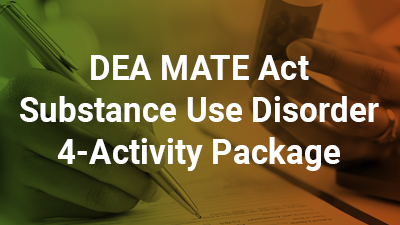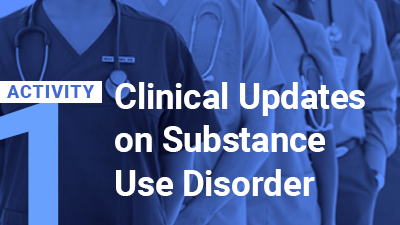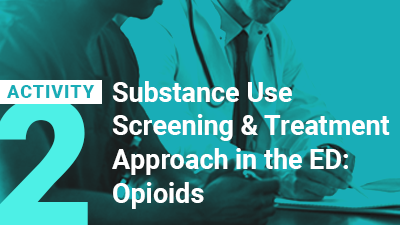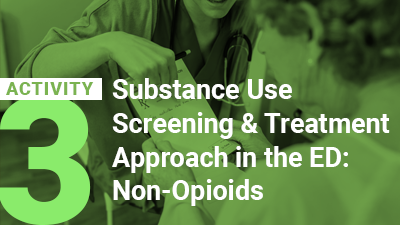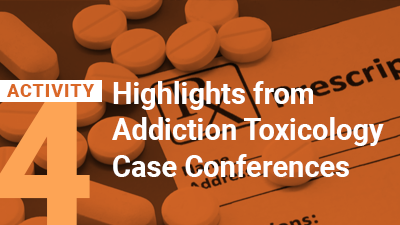New MATE Act Educational Requirements to Renew DEA License – What ACMT Members Should Know
New MATE Act Educational Requirements to Renew DEA License - What ACMT Members Should Know
The DEA has recently released specific guidance to help healthcare providers enhance their expertise in addressing substance use disorder (SUD). As part of this guidance, mandated by the Medication Access and Training Expansion (MATE) Act, healthcare prescribers are now required to complete 8 hours of education in order to renew their DEA license. With a goal of improving patient care, ACMT was a co-sponsor of this act. ACMT is pleased to offer a new webinar-based education option to assist our members in meeting these requirements.
Please know that we are working hard to advance and advocate for our profession and develop the workforce. We are proud to share that the field of medical toxicology has been actively engaged in congressional advocacy efforts in recent years. Despite ACMT and medical toxicology being relatively small compared to some of our partner organizations, we are making progress and raising our visibility. We will continue to strive for greater visibility and influence and to demonstrate our value among important stakeholders including partners organizations and policy makers. Our mission drives us to keep working towards a future where we are an important voice in national efforts and legislation that help develop the medical toxicology workforce and improve patient care.
When it comes to the required education for renewing your DEA license, the good news is that the education requirements offer some flexibility. Starting from June 27th of this year, all you need to do is check a box on your application indicating that you have completed 8 hours of education on SUD treatment in order to receive or renew your DEA license. It's essential to understand that this doesn't mean you have to complete the education by June 27th if you already hold a DEA license. Rather, it means that starting from that date, you should fulfill this requirement before your next scheduled DEA license renewal, which typically occurs every three years. So, if you have recently renewed your license and haven't yet met the education requirement, you have a few years ahead to fulfill it. This flexibility allows you ample time to complete the necessary education at your convenience.
Who is exempt from this requirement?
Fortunately, certain groups are exempt from the additional education requirements to fulfill the DEA license renewal. These exemptions have been put in place to acknowledge the existing expertise and qualifications of healthcare providers. Here are the groups that are exempt from the additional education:
- Individuals who have already completed the X-Waiver.
- Those who have completed any previous 8 hours of education related to the treatment of patients with OUD or SUD. It's important to note that you don't have to sit through a single 8-hour session. Instead, you can satisfy the requirement through cumulative Continuing Medical Education (CME) hours. These education sessions can be obtained through various formats, including classroom settings, professional society meetings, or virtual offerings.
- Physicians who have graduated within five years and are in good standing from a medical school in the United States that included successful completion of an opioid or other substance use disorder curriculum of at least 8 hours.
- Healthcare providers with board-certification in addiction medicine or addiction psychiatry.
These exemptions recognize the prior education and qualifications of healthcare providers and aim to streamline the renewal process. If you fall into any of these exempt categories, you can proceed with confidence knowing that you have met the necessary education requirements for DEA license renewal. We anticipate that the majority of ACMT members will have fulfilled the criteria under one of these exemptions.
Who may need to fulfill this requirement and what are the options?
For ACMT members who have not met these specific criteria or for those who are interested in additional Substance Use Disorder (SUD) education, ACMT has developed its own comprehensive curriculum to fulfill these requirements. While many other societies and educational institutions have provided their own educational offerings to meet these requirements, ACMT, recognizing the expertise of medical toxicologists in this domain, felt it was necessary to offer its own education. This not only benefits our members who may require this content but also extends to the thousands of healthcare providers who are not exempt and are seeking high-quality SUD content.
The ACMT DEA MATE Act SUD Educational Package consists of four separate activities. Attendees can register for each activity separately as meets their needs or interests, or sign up for the 4-activity package. Each activity is accredited and has its own Continuing Education certificate. When packaged together, the 4 activities award 8.50 credits, more than the requirement needed to maintain DEA licensure.
Find out more at: education.acmt.net/dea-mate
It's important to note that the education does not need to be completed in one session. Participants have the flexibility to accumulate the required hours across multiple sessions. The listed CE activities can be combined in any way to fulfill the eight-hour education requirement.
To ensure the education provided meets the standards set by the Accreditation Council for Continuing Medical Education (ACCME), ACMT has partnered with AKH Inc (Advancing Knowledge in Healthcare) to provide the necessary Continuing Education for all DEA-registered practitioners who treat patients with opioid or other substance use disorders. We are proud to say that not only will we have Continuing Education credits available for physicians, advanced practice practitioners, but for the first time ACMT is offering Continuing Education for dentists as well.
The best part? For ACMT members, this education and CE is provided free of charge!
ACMT is committed to ensuring that its members and healthcare providers have access to quality education to meet the education requirements, contributing to their professional development and the advancement of the field of medical toxicology.
If anyone has any questions feel free to contact ACMT at info@acmt.net.
Anthony Pizon, MD, FACMT
ACMT Board President
Paul Wax, MD, FACMT
ACMT Executive Director
Diane Calello, MD, FACMT
ACMT Education Committee Chair

